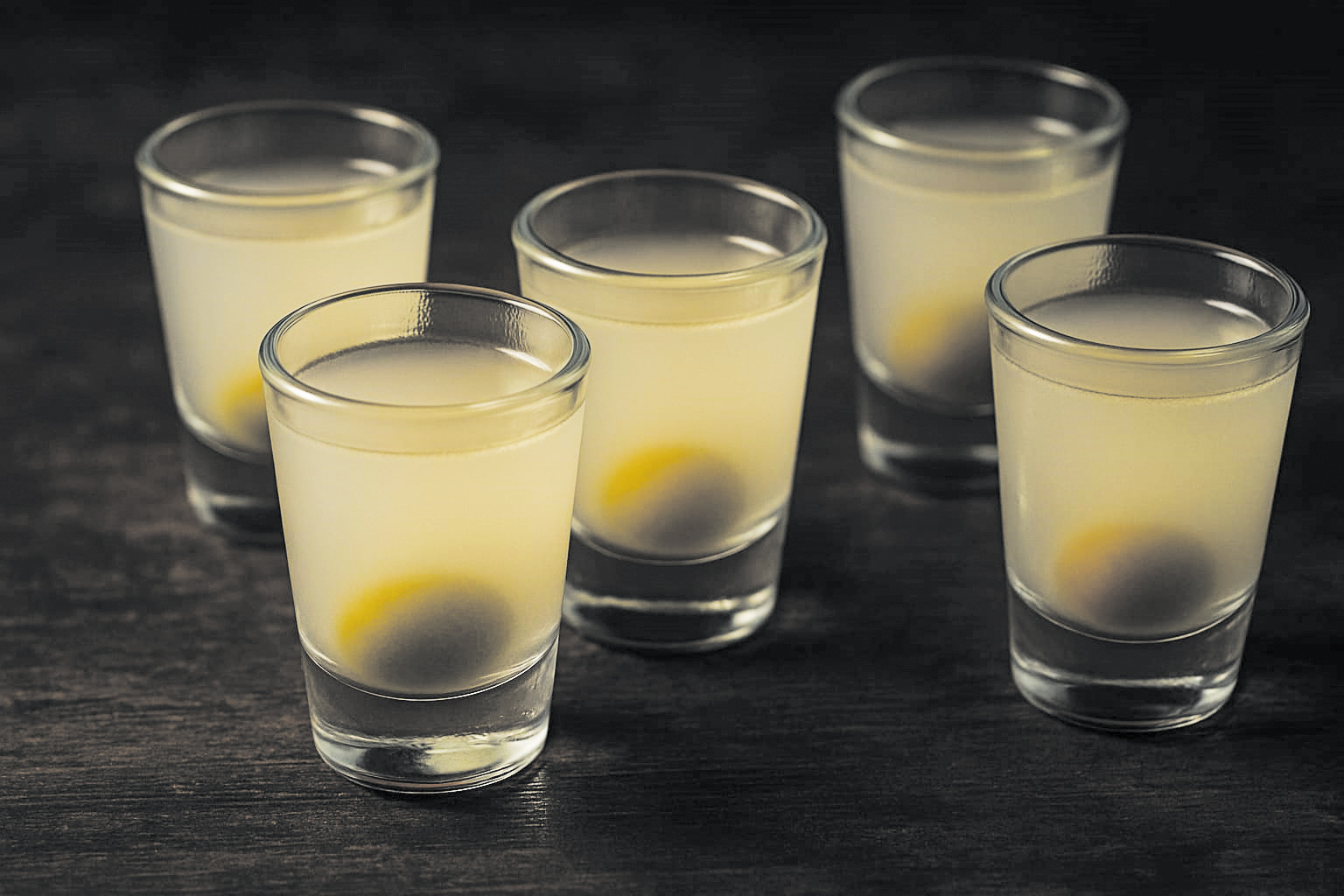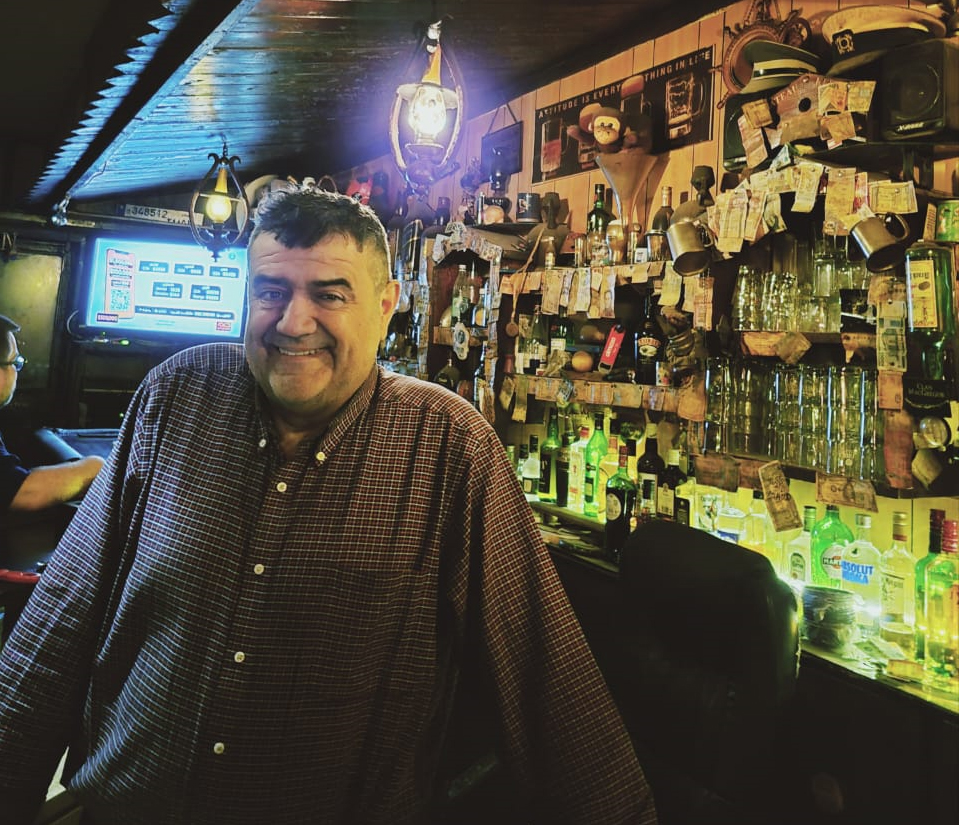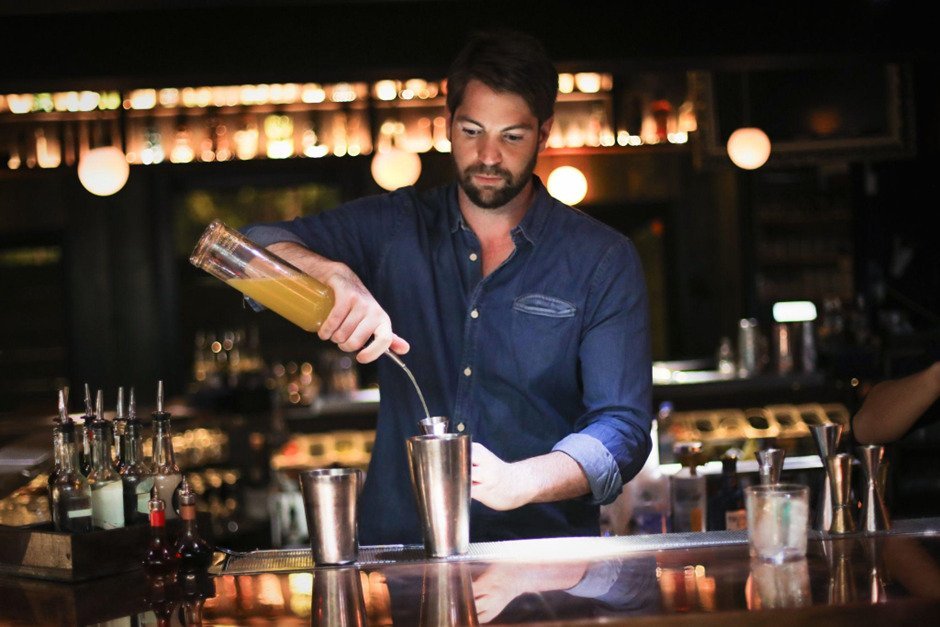With interest piqued by an unusual cocktail in a Cyprus bar, history is unveiled on a trip to neighbouring Lebanon
It began with an innocent question at Madame bar in Limassol, where curiosity about a unique blend called the ‘doudou shot’ led me down a path I hadn’t expected.
The bartender’s description of this mix – a blend of vodka, a splash of lime, a dash of Tabasco, and an olive – piqued my interest.
“Lebanon is where it all started,” he said, a claim that set the stage for my journey to Beirut to uncover its roots.
What I found was far more than just the story of a drink. It was the story of a bar, a man, and a city that has seen the world shift around it.
Friends in Lebanon helped me find the place – an old bar people talk about with quiet reverence. They said the doudou shot was first made there, and if I really wanted to understand it, that’s where I had to go.
That bar is Captain’s Cabin.
Tucked away in a shadowy corner of Hamra’s Adonis street, Captain’s Cabin is easy to miss. Its unassuming wooden façade barely hints at what lies within. But once you step inside, you feel it immediately – like time has paused.
The lights are low. Fleetwood Mac or Pink Floyd hums softly under the crack of billiard balls. The air is thick with the smell of old wood and stronger spirits.

Behind the bar, wearing an expression of quiet welcome, stands André Toriz. Now in his late fifties, born in Beirut, with Mexican origins, he has been behind the bar for more than 25 years. But his relationship with Captain’s Cabin goes back to the very beginning – 1964, the year he was born.
That was also the year his father helped three Middle East Airlines pilots turn an old fish shop into a sanctuary for card games and whisky-fuelled conversation away from their wives.
“My father was the only one who wasn’t a pilot,” André says with a smile. “But they all called him Captain anyway.”
By 1972, the makeshift hideout became a fully licensed bar and restaurant. “It was booming,” says André.
Then came the war. The Lebanese Civil War erupted in 1975 and reshaped Beirut. “We thought it would last a few months,” André adds, “my father kept saying it would get better.” It didn’t.
The electricity cuts became routine. Fridges barely worked. “We were the first to buy a generator. But it was so loud you couldn’t hear yourself talk.” Even so, Captain’s Cabin stayed open.
“It wasn’t just about serving drinks anymore. It was about being a safe place.” During the heaviest shelling, people would sleep on the couches. “We’d lock the doors, dim the lights, and wait. There were nights when I slept here too.”
He points to a faded photo on the wall – four men asleep in armchairs, an ashtray between them.
“That was from 2007, another bad year of fighting. They were professors from Europe and the US, teaching at universities here. They couldn’t get home that night, so they stayed. That picture always reminds me how this place became a shelter.”
In the late 1990s, after a short stint in Venezuela, André returned home when his father passed away. “He gave everything to this bar. I couldn’t let it go,” he says.
He also studied business management – “just in case” – but it was always Captain’s Cabin that called him back.
But Cyprus, too, is part of André’s story. In the early 1990s, he volunteered at a Christian church in Lebanon and then relocated to Cyprus, where he lived and worked at the Ayia Napa monastery. “I needed time to think, to breathe,” he said.
It was there, in what was then a quiet seaside town, André found “peace when I needed it most. It’s still like a second home.”

Today, back in Beirut, André juggles the bar while caring for his elderly mother, who now suffers from dementia. “I make sure she’s alright before I open the place,” he says. “She was always there for my father, my siblings and me. Now it’s my turn.”
It’s that spirit – the refusal to change just because the world has – that defines Captain’s Cabin. It isn’t slick or polished. It doesn’t cater to Instagram influencers or serve drinks with edible flowers. The garden out back is a quiet escape.
And, of course, there’s still the doudou shot. This peculiar little cocktail has become almost legendary in Lebanon and later Cyprus.
“The olive must be bitter,” André says, pulling one out of a jar. “Some bars use sweet ones. That ruins everything.”
The night I was there, he served a line of doudou shots to a mixed crowd – two German backpackers, a Lebanese playwright, and a Cypriot visiting friends.
“Cheers to peace,” André says, lifting his own glass. “And to the stories we still haven’t heard.”
Someone asks him if he’d ever leave the bar. “I have a girlfriend,” he replies, “but she doesn’t like the bar life. Too many late nights. Still… this is who I am. If you love me, you love the bar too.”
There’s no fanfare at Captain’s Cabin. No neon signs. No mixologists with ironic moustaches. Instead, there’s André – mixing drinks, sharing memories, offering space to laugh, cry, or simply be still.
On my last evening in Beirut, as I had my second – maybe third – doudou shot and watched the signatures, notes, quotes and love letters against the wood-panelled walls, I realised I didn’t want to leave.
Captain’s Cabin had pulled me in, gently, the way the sea does when you stop resisting.
Before I left, André leaned in and said something I still carry with me. “We only need a little bit more peace,” he said, almost to himself. “The rest will come.”
And all of it—this story, this man, this drink—started with a simple question in a bar back in Limassol.






Click here to change your cookie preferences